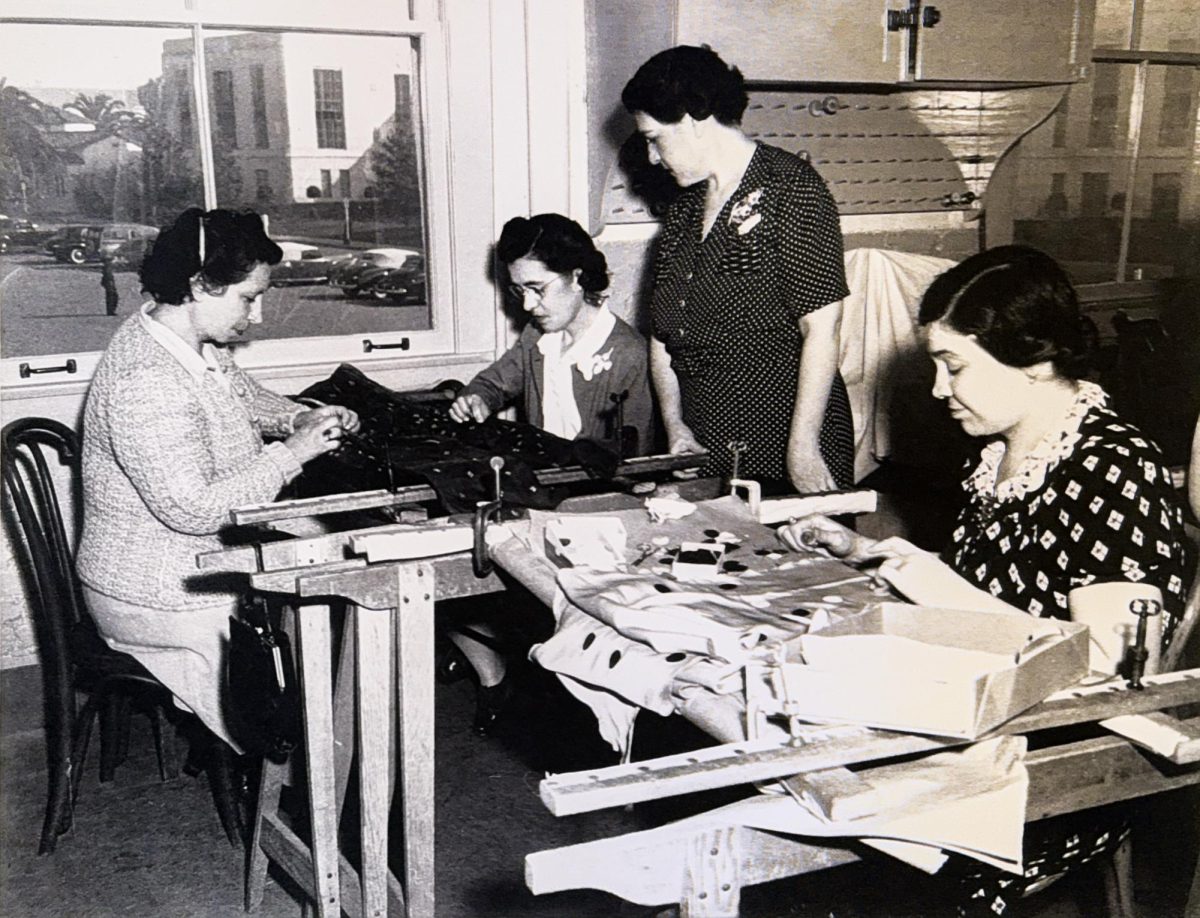The fear of robots taking over humanity has been a subject of science-fiction movies since the 1950s. In recent years, the developments made in artificial intelligence have made this once dystopian topic a reality. So much so that there are debates over the logistics of computers taking over jobs done by humans. There are merits to both, but should artificial intelligence be allowed to replace human jobs?
Kai Zheng
 Human service has always been the base of economic growth. Harkening back to the days of yore, merchants would barter in the streets for a day’s meal or a simple coat to keep them warm. Simply put, we have built business and industry around these human connections and interactions.
Human service has always been the base of economic growth. Harkening back to the days of yore, merchants would barter in the streets for a day’s meal or a simple coat to keep them warm. Simply put, we have built business and industry around these human connections and interactions.
If we were to allow artificial intelligence to take over, it would reroute hundreds of years of progress and growth.
True, the idea of letting computers and machinery take over a job normally done by humans sounds nice on paper. It gets rid of the aspect of human error and allows for a quick and clean interaction.
More and more, grocery stores, department stores, even hospitals are working to lessen the needs of having a human do duties a robot could.
In fact, some studies even show that some people prefer an artificial doctor to a human one.
The idea sounds great… But what happens when it starts to go wrong?
Being greeted with an automated voice presenting a list of over ten options can be frustrating, especially if your question could’ve been answered with a simple yes or no.
Computers lack the ability to listen. A huge part of a customer service job is the ability to make the customer feel heard. Instead, a customer would be greeted by an LED screen with a series of questions.
Robots also lack empathy.
In a profession that requires it like the medical field or social work. A computer won’t be able to look a patient in the eye and have a strong bedside manner when diagnosing him or her with cancer.
Computers also lack the ability to critically think, a skill that most of us do on a daily basis. Whether it’s a team of scientists analyzing a study or a teacher coming up with a creative lesson plan, critical thinking is a very important skill to have that robots simply cannot carry out.
While the idea of an artificially intelligent machine carrying out simple tasks in lieu of a human may seem more convenient and all around more sound, when you sit down and actually consider the outcome (another thing that robots can’t do), the answer is clear.
Lucy Marx

For years we have been afraid of the inevitable: Robots taking over human jobs.
But this doesn’t indicate the start of a divide between humans and robots, instead, the rise of artificial intelligence will only help humans to continue growing and innovating.
The fear that ‘robots’ will replace humans in the workforce is unfounded and unnecessary.
AI is entirely different from factory automation and refers to the ability of a program to recognize signals and speech, interpret and problem solve.
As AI takes over trivial, learnable tasks, a flood of new jobs will take the place of the old as new technology demands humans to guide and create it.
Artificial intelligence should be encouraged to take certain human jobs so that we can move past menial and repetitive tasks and focus on better things. In this way, AI can take over the more laborious jobs so that humans can move onto big-picture, conceptual jobs.
AI could even lead to more jobs for lawyers and attorneys as the idea of AI ethics becomes more prevalent.
Within the financial industry, the number of jobs in higher-up positions such as managing and advising is projected to increase by the thousands by 2026 as basic tasks like telling and bookkeeping are taken over by AI.
As reported by the Bureau of Labor Statistics, AI can easily replace humans in jobs that require computing and math. However, it is difficult to program AI to understand and perform more complex tasks such as risk management.
Additionally, as new technology becomes more prevalent in society, new jobs to research, develop and create that technology will also arise.
There is no way that computer programs will be able to entirely replace humans in the workforce, at least as far as we can tell now.
But that doesn’t mean we shouldn’t use all the tools available to us to make the quality of life better.
AI opens new doors in so many different fields, and while it is sure to make waves in society as it becomes a bigger part of everyday life, it will allow more opportunities and newer, better jobs.










